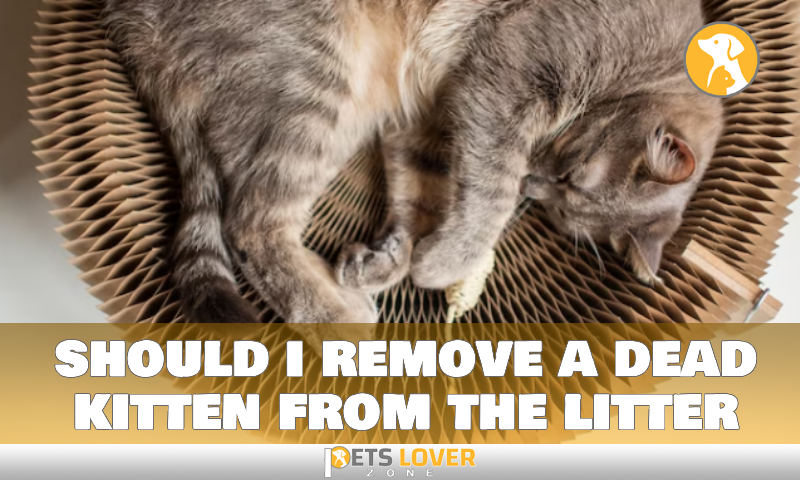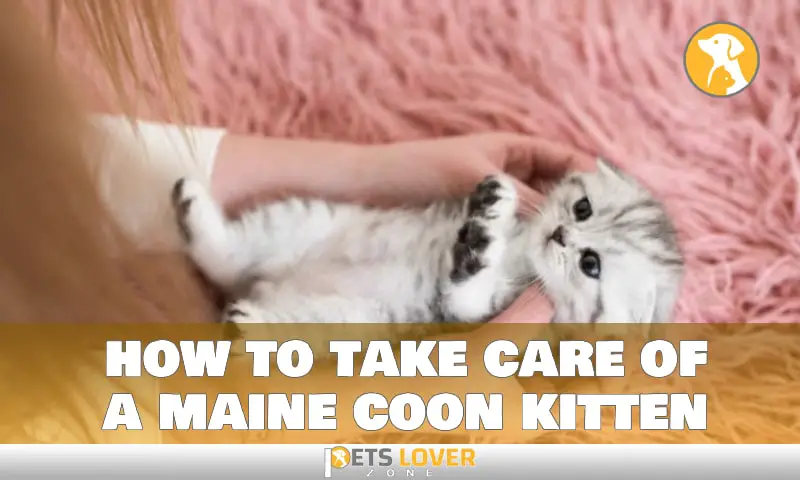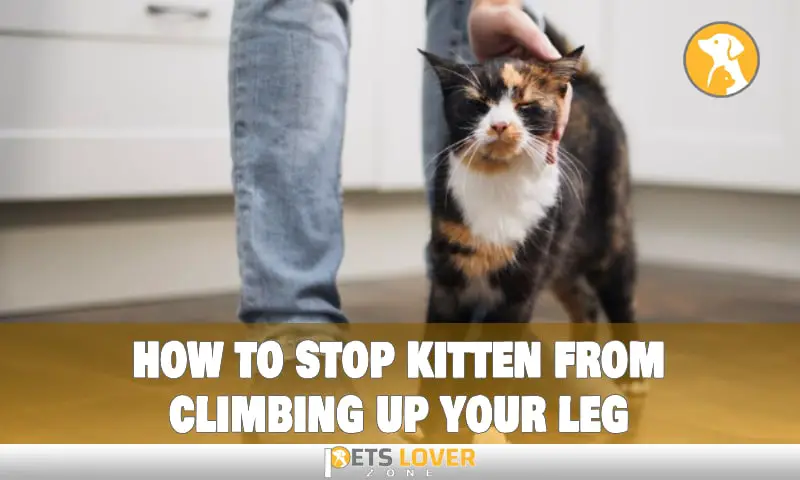Experiencing the death of a kitten can be a heartbreaking event. As you find yourself facing the task of disposing of the tiny body, it can be difficult to decide what is the right thing to do.
The key is to remember that while you may feel an overwhelming sense of sadness, there are practical steps that need to be taken to ensure the safe and respectful disposal of the deceased kitten. In this article, we’ll talk about how to handle and dispose of a dead kitten in a respectful way.
We will cover how to determine if the kitten has died, how to remove it from its mother’s litter, and what options are available for disposal. We will also provide some tips for coping with grief in such a situation. By understanding these steps and the process involved with disposing of a dead kitten, you can navigate this situation with respect and care for those involved—both furry and human alike.
Confirming the Kitten Has Passed Away
Before taking further action, it is important to make sure the kitten has passed away. Check to see if the pupils of the eye are larger than usual, as this can be a sign that the cat has died. To confirm this, you can try separating its paws and gently pinching the skin between the toes to see if you get a response. Pay close attention to any signs of breathing; if the kitten’s chest does not rise or fall after a few seconds, then it is likely dead.
Why You Should Remove the Dead Kitten From the Litter Promptly
When a kitten passes away in its litter, it is best to remove the body promptly and properly. Leaving the dead kitten in the litter poses several health risks to both cats and humans.
First, it is important to minimize the chances of infection spreading among other cats in the litter. Dead kittens can become breeding grounds for bacteria, viruses, and parasites that can easily spread to other cats if not removed and properly disposed of immediately.
Second, decomposing organic matter results in bad odors and an unpleasant environment for any living creature. In addition, it can attract unwanted pests such as flies.
Finally, disposing of a dead kitten improperly can also put you at risk of contracting zoonotic diseases—infections passed between animals and humans, such as salmonella or toxoplasmosis. Removing the kitten promptly helps prevent any contact with these organisms that could make you sick.
How to Handle and Remove the Deceased Kitten With Care
When it comes to handling and disposing of a deceased kitten, it’s important to do so with respect and care. Even though the kitten has passed away, it should not be treated any differently than if it were still alive.
When removing the deceased kitten from the litter, the following steps should be taken:
- Gather supplies like gloves, a plastic bag, a newspaper, or a box to contain them.
- Place a newspaper or a box over the deceased kitten and carefully pick it up, avoiding contact with any bodily fluids that might be present.
- Place the kitten in the plastic bag and place it in an area away from other cats and kittens that are still alive.
- Dispose of the deceased kitten in accordance with local regulations for pet burial or disposal—do not simply throw it away in regular garbage collection bags or bins!
Taking these steps will help you handle and dispose of a dead kitten safely and respectfully while minimizing your risk of exposure to any infection that may have caused its death.
Options for Disposing of the Dead Kitten Respectfully

When faced with the task of disposing of a dead kitten, it’s important to do so with respect and care. Here are some options for how to handle and dispose of a dead kitten in the litter:
Bury it
One respectful way to dispose of a dead kitten is to bury it in your yard or garden. You can also check your local laws and regulations regarding burying animals on your property.
Incineration
Another option is incineration, which involves burning the body in a kiln or furnace. This method is often available through pet crematories or veterinary clinics, or you can contact your local animal control office for more information.
Euthanasia
If the kitten’s death was sudden and unnatural, you may wish to consider euthanizing it instead of incineration or burial. This involves having a professional administer an injection that puts the animal out of its misery as quickly as possible.
Regardless of how you choose to dispose of the dead kitten, make sure that you’re taking all necessary precautions to do so respectfully and safely.
Caring for the Surviving Kittens After the Loss
In the wake of the death of one or more kittens in your litter, it’s important to take special care of their surviving siblings. Kittens are more susceptible than adult cats to getting ill, so it’s important to ensure any weakened immune systems are taken care of in order to prevent the spread of any potential sickness.
Here are a few ways you can help make sure your kittens stay healthy:
- Monitor temperature and humidity in their living space – as these two things can affect their health significantly.
- Ensure that they are eating enough regularly – which can be tough when grieving the loss of one or more littermates.
- Keep them in a clean environment by changing or refreshing bedding or bed liners regularly, as well as doing regular spot cleaning in the area where they reside.
- Make sure it is properly ventilated with adequate air circulation.
- Finally, offer emotional support by providing an abundance of love and affection as well as extra attention when needed.
By following these steps, you will ensure that your surviving kittens remain healthy during this difficult time and that they receive all the love they need to get through it.
Preventing Future Kitten Deaths: Providing the Best Care Possible
Removing a dead kitten from the litter box can be heartbreaking, but it is essential for preventing any further loss of life. Taking proactive steps to keep your kittens healthy and safe will help guard against any future losses. Here are some best practices for doing so:
- Keep the litter box clean – Empty and clean the litter box on a regular basis to avoid the buildup of bacteria or toxins that could cause illness in your kittens.
- Check their general health – Look out for signs of illness such as lack of appetite, weight loss, or unusually cold ears in your kittens, as these can all be signs that something is wrong and they need medical attention.
- Feed them a balanced diet – Provide them with a balanced diet of wet and dry food that is tailored to their individual needs by consulting with your veterinarian.
- Keep them hydrated – Make sure they always have access to plenty of fresh, clean water throughout the day.
- Monitor their behavior – Keep an eye out for any changes in behavior, such as increased aggression or lethargy, which could indicate that they are suffering from an underlying condition.
- Give them plenty of exercises – Ensure that they have enough mental stimulation through toys and physical activity within their environment.
- Provide access to a warm environment – Make sure that whatever area your kittens are inhabiting has access to enough warmth during colder months and does not get too hot when temperatures rise in summer months.
When to Call a Vet After a Kitten’s Death
If you know or suspect that your kitten has died, it’s important to call a vet right away. Your vet can help you determine the cause of death and provide advice on how best to handle the remains.
Before calling a vet, consider the following:
- Is the kitten old enough (at least eight weeks old) to have received all its necessary vaccinations?
- How long has it been since the kitten passed away?
- Was the mother cat present during or soon after the death? If so, was she exhibiting any signs of distress or illness?
- What were the circumstances under which the kitten died (e.g., in a fight with another animal, natural causes due to age)?
Your vet can answer these questions and more, helping you decide if special care needs to be taken when handling and disposing of your dead kitten. In some cases, your vet may also suggest an autopsy or further testing to determine the cause of death.
Helping the Mother Cat Grieve the Loss of Her Kitten
If a mother cat has lost a kitten, it can be beneficial for her to have the chance to grieve her loss. When removing the dead kitten from the litter, handle it gently and with extreme care. If possible, try to do so in view of the mother cat—though keep in mind that she may become distressed when she sees her baby being moved. It’s also important to ensure that other cats in the area are supervised and kept away from the deceased kitten.
When disposing of the dead kitten, it’s best to place it in a small bag or box and bury it in an appropriate location away from other animals and children. If you cannot bury it yourself, contact your local animal control office to ask if they offer disposal services. This ensures that your pet is given a respectful end-of-life experience that honors their life as part of your family.
Monitor the Remaining Kittens Closely
It is important to keep a close eye on the remaining kittens in the litter after the death of one has been discovered. Ensure all kittens are receiving proper nutrition and look for any signs of sickness in the other kittens, including labored breathing, sneezing, coughing, vomiting, diarrhea, or any other changes in eating habits or behaviors. If you do notice any of these signs in any of the remaining kittens, contact your veterinarian right away for advice.
Additionally, make sure to separate those who are healthy from those who may be feeling unwell in order to prevent possible contagion and further spread of whatever illness may have caused the first kitten’s death. Keeping all of the litter members clean is also important to prevent potential future illnesses from taking root.
How to Properly Dispose of a Dead Kitten

It is important to handle and dispose of a dead kitten in the litter box in the right way. When you notice a dead kitten in the litter, it is best to remove it as soon as possible.
The most important step to take when dealing with a dead kitten is creating a safe environment. First, wear gloves and use some type of disinfectant or cleaner before handling the kitten. Then, put it in an airtight bag or container and take it outside right away.
Once outside, be sure to dispose of the dead kitten far away from other cats or animals that may be in the area. Burial is one option for proper disposal, although burning or deep freezing of the body may also work well. If you choose to bury it, be sure to dig a hole at least six inches deep and place rocks or heavy objects on top of the grave site so that no other animals can get at it.
When disposing of a dead kitten from the litter, always remember to stay safe by taking all necessary precautions and being mindful of your environment.
Conclusion
The death of a kitten is a difficult experience, but it is important to take the necessary steps to handle and dispose of the deceased animal in a safe and appropriate manner. By wearing protective gear and using the two-bag method, you can prevent the spread of disease. Additionally, make sure to dispose of the body in an appropriate manner, such as by burial or cremation. If a pet is buried, ensure the location is away from children and the family pet, so their health is not at risk. Ultimately, the loss of a beloved pet is never an easy situation to deal with, but proper handling and disposal of the dead kitten can help you and your family cope with the unfortunate event.






